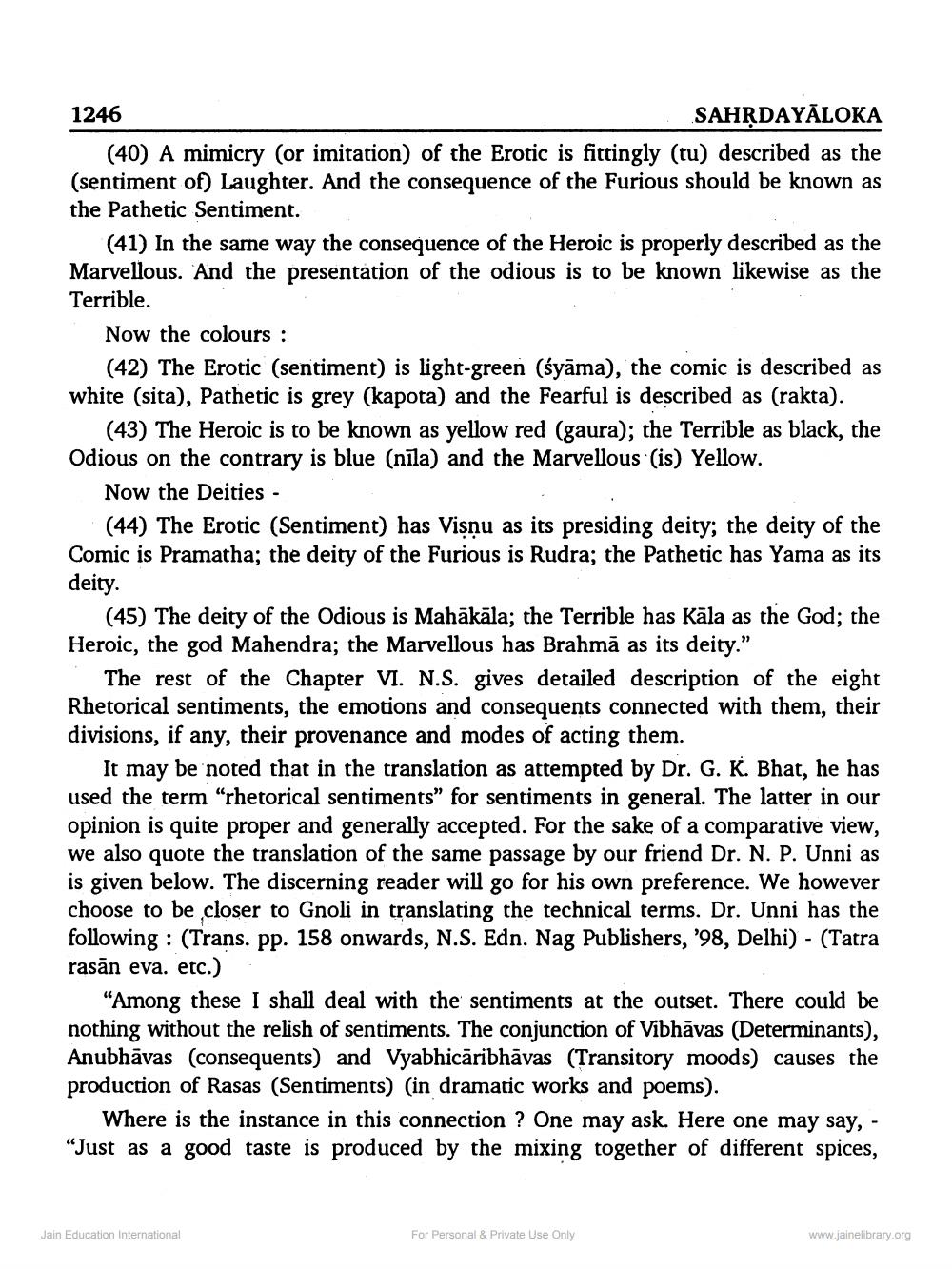________________
1246
SAHRDAYĀLOKA (40) A mimicry (or imitation) of the Erotic is fittingly (tu) described as the (sentiment of) Laughter. And the consequence of the Furious should be known as the Pathetic Sentiment.
(41) In the same way the consequence of the Heroic is properly described as the Marvellous. And the presentation of the odious is to be known likewise as the Terrible.
Now the colours :
(42) The Erotic (sentiment) is light-green (śyāma), the comic is described as white (sita), Pathetic is grey (kapota) and the Fearful is described as (rakta).
(43) The Heroic is to be known as yellow red (gaura); the Terrible as black, the Odious on the contrary is blue (nīla) and the Marvellous (is) Yellow.
Now the Deities -
(44) The Erotic (Sentiment) has Visnu as its presiding deity; the deity of the Comic is Pramatha; the deity of the Furious is Rudra; the Pathetic has Yama as its deity.
(45) The deity of the Odious is Mahākāla; the Terrible has Kāla as the God; the Heroic, the god Mahendra; the Marvellous has Brahmā as its deity.” The rest of the Chapter VI. N.S. gives detailed description of the eight
cal sentiments, the emotions and consequents connected with them, their divisions, if any, their provenance and modes of acting them.
It may be noted that in the translation as attempted by Dr. G. K. Bhat, he has used the term "rhetorical sentiments” for sentiments in general. The latter in our opinion is quite proper and generally accepted. For the sake of a comparative view, we also quote the translation of the same passage by our friend Dr. N. P. Unni as is given below. The discerning reader will go for his own preference. We however choose to be closer to Gnoli in translating the technical terms. Dr. Unni has the following: (Trans. pp. 158 onwards, N.S. Edn. Nag Publishers, '98, Delhi) - (Tatra rasān eva. etc.)
"Among these I shall deal with the sentiments at the outset. There could be nothing without the relish of sentiments. The conjunction of Vibhāvas (Determinants), Anubhāvas (consequents) and Vyabhicāribhāvas (Transitory moods) causes the production of Rasas (Sentiments) (in dramatic works and poems).
Where is the instance in this connection ? One may ask. Here one may say, - “Just as a good taste is produced by the mixing together of different spices,
Jain Education International
For Personal & Private Use Only
www.jainelibrary.org




